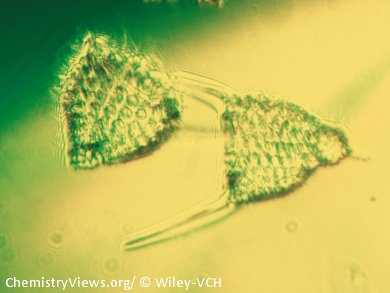Lactimidomycin was originally found to be potently cyctotoxic with promising selectivity for malignant cells over healthy tissue. After the isolation of the structurally related migrastatin and isomigrastatin, which were found to be cell-migration inhibitors and might prevent cancer metastasis, lactimidomycin was tested for this mode of action and found to be “extremely potent” at concentrations below those needed for cytotoxicity.
Convincing evidence exists that lactimidomycin and isomigrastatin primarily affect the ribosome. Although blockage of the ribosome explains the cytotoxicity of lactimidomycin, effective cell-migration inhibition by this mode of action is less clear and requires investigation.
Alois Fürstner and co-workers, Max-Planck-Institut für Kohlenforschung, Mülheim/Ruhr, Germany, developed a concise synthesis of lactimidomycin, isomigrastatin, and several analogues. Careful biological re-evaluation of lactimidomycin and its progeny showed them to be potently cytotoxic against a range of cancer cell lines. Strikingly, these data do not confirm any significant cell-migration inhibition; instead lactimidomycin and several isomers were found to be acutely cytotoxic, effectively killing cancer cells before any migratory effects could arise.
- Total Syntheses and Biological Reassessment of Lactimidomycin, Isomigrastatin and Congener Glutarimide Antibiotics,
Kévin Micoine, Peter Persich, Josep Llaveria, My-Hanh Lam, Andreas Maderna, Frank Loganzo, Alois Fürstner,
Chem. Eur. J. 2013.
DOI: 10.1002/chem.201300393




